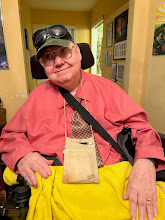Wednesday, May 29, 2013
Positive Feedback Positive Learning
Learning is best when it is positive. Even brain research indicates that when the brain is in a positive mood learning is more effective. Thus every student should receive positive feedback. Every paper, quiz, assignment or test should contain positive feedback. Even papers with an 'F' should have remarks such as "good try keep working hard", "I'm pleased you turned in a paper.", "You are brave for turning in a paper today."
It takes bravery to turn in a paper you know is not what it should be. Or worse if everyone is turning in a paper when you don't have one, you are filled with anxiety and dread. When you have tried hard, you turn in papers and assignments with a positive feeling and pride. Believe me as a dyslexic student, I know this from personal experience.
Positive comments encourage students to work and try harder. This is called positive reinforcement. The opposite negative reinforcement makes a student dislike learning and causes him to avoid doing assignments. The teachers we remember with good feelings were those who were positive and encouraged us to try hard and to do our best. They are teachers who said positive things and smiled a lot at us. They radiated warmth and kindness.
Brain research shows that positive feedback releases dopamine in the brain. Dopamine is a neural transmitter which helps nerves to communicate with each other. When dopamine is released by the nerves the student feels better and learning occurs much better as well. So positive feedback is a basic part of our ability to learn and remember new things. Thanks for reading my blog. :-)
Friday, May 24, 2013
Nexus 7 First Impressions
Monday, May 20, 2013
The value of self selection in reading
II read a great article on the value of self choice when reading books. Unfortunately I'm not able to find that article at the moment. But the author: makes the point that when children and adults self-select their books they frequently run into a book that will change their life. I remember reading a book that changed my life.
After I graduated with my PhD I have a good friend who liked to read the philosophy of Ludwig Wittgenstein. I found these books too difficult to read myself. So my friend recommended that I should read the American philosopher Norman Malcolm. I read Norman Malcolm's book Thought and Knowledge.
In this book Malcolm sets out Wittgenstein’s argument that thought is not equivalent to brain activity. The sciencentific hypothesis that thought is merely generated by brain activity is called reductionism. Malcolm sets forth a very cogent argument that thought is independent of the brain. Malcolm argues that the reductionist argument is not philosophically sound and is circular logic.
This argument literally made me drop the book while I sat stunned.
As a trained psychologist I had decided that the reductionist hypothesis was the only reality for human thought and existence. With surprise I thought, "If thought existed out of the brain then human existence did not depend on our body alone." This meant that I could entertain the hypothesis that thought could exist outside of the human body. In other words we as humans have something that is called the soul. This soul can exist beyond the physical body, since thought is not dependent upon the human body.
This then let me on a life long journey of reading scientific research about human consciousness and the possibilities of human existence beyond physical death.
I read scientific research. I wish to repeat that I read scientific research on the following topics telepathy, remote viewing, near-death experience, mental healing, reincarnation, the impact of the mind on physical processes and the impact of prayer on human affairs.
This life long reading has convinced me that thought is independent of the human brain. The brain is a switchboard or first responder between our extended mental capacities and the physical world. I am convinced that our consciousness or soul exist beyond bodily death. The scientific research is still inconclusive as to where our human consciousness goes after death. I prefer to think that the Hindu believe that there are thousands of heavens is a nice hypothesis to entertain. The Hindu believe is that the individual goes to the particular heaven which matches their personality. That is an intriguing hypothesis.
So as you can see simply reading one book can set you on a life long journey of learning and investigation. So I encourage you to read and I hope your reading will lead you to your life's journey.
Saturday, May 11, 2013
iPad Apps to help with language acquisition
Subscribe to Comments [Atom]
